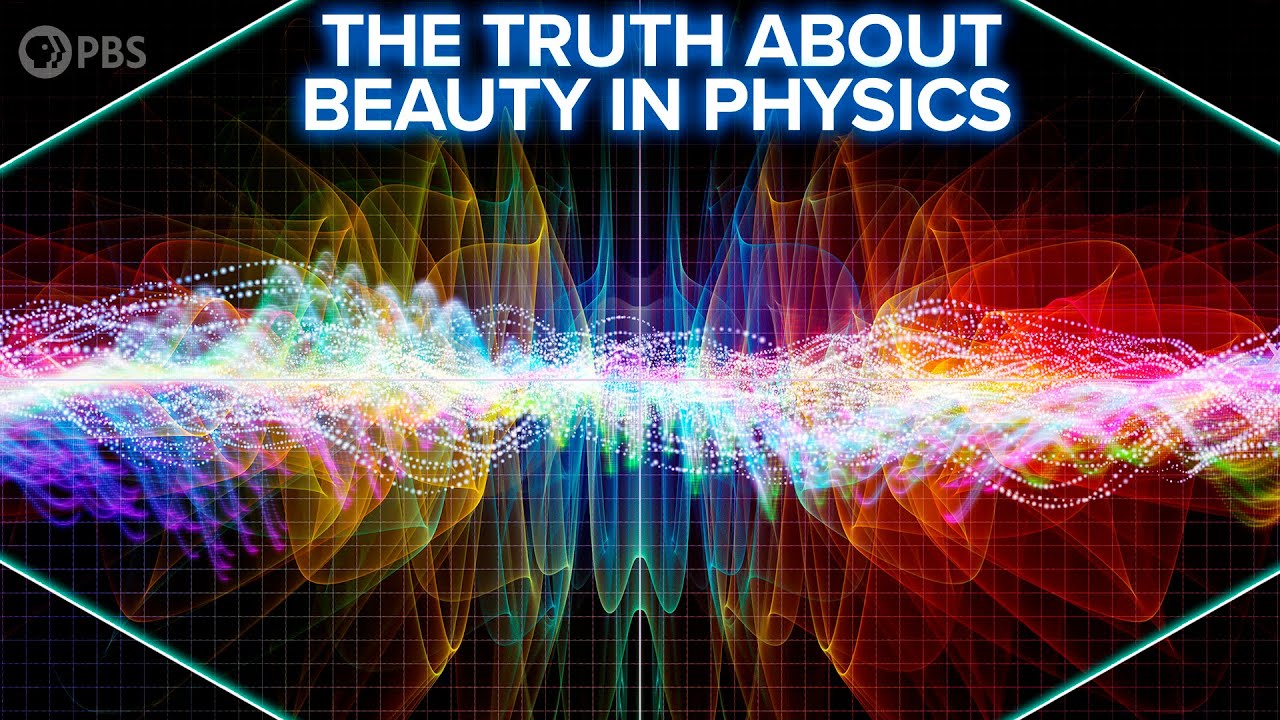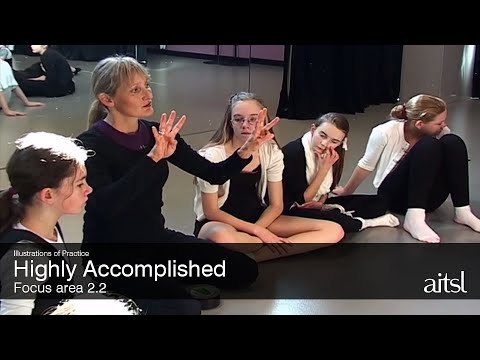PBS Space Time
PBS Member Stations rely on viewers like you. To support your local station, go to: http://to.pbs.org/DonateSPACE
↓ More info below ↓
The great physicist Hermann Weyl once said: “My work always tried to unite the true with the beautiful, but when I had to choose one or the other, I usually chose the beautiful.” But is this actually good advice for doing physics?
Sign Up on Patreon to get access to the Space Time Discord!
https://www.patreon.com/pbsspacetime
Check out the Space Time Merch Store
https://pbsspacetime.com/
Sign up for the mailing list to get episode notifications and hear special announcements!
https://mailchi.mp/1a6eb8f2717d/spacetime
Hosted by Matt O’Dowd
Written by Matt O’Dowd
Graphics by Leonardo Scholzer, Yago Ballarini, & Pedro Osinski
Directed by: Andrew Kornhaber
Camera Operator: Setare Gholipour
Executive Producers: Eric Brown & Andrew Kornhaber
End Credits Music by J.R.S. Schattenberg: https://www.youtube.com/channel/UCRl6-nb4iOnsij-vnpAjp0Q
Special Thanks to All our Supporters on Patreon!
Big Bang Supporters
Scott Gray
James Younger
Robert Doxtator
Ahmad Jodeh
Caed Aldwych
Radu Negulescu
Alexander Tamas
Morgan Hough
Juan Benet
Fabrice Eap
Mark Rosenthal
David Nicklas
Quasar Supporters
Alec S-L
Christina Oegren
Mark Heising
Vinnie Falco
william bryan
Hypernova Supporters
Mark Matthew Bosko
Justin Jermyn
Jason Finn
Anton Kochkov
Julian Tyacke
Syed Ansar
John R. Slavik
Mathew
Danton Spivey
Donal Botkin
John Pollock
Edmund Fokschaner
Joseph Salomone
Matthew O’Connor
chuck zegar
Jordan Young
Hank S
John Hofmann
Timothy McCulloch
Gamma Ray Burst Supporters
Richard Deighton
Lucas Morgan
Eric Webster
David Johnston
J. King
Michael Barton
Christopher Barron
James Ramsey
Mr T
Andrew Mann
Jeremiah Johnson
fieldsa eleanory
Cody Lubinsky
Peter Mertz
Kevin O’Connell
Bryan Dawley
Isaac Suttell
Devon Rosenthal
Oliver Flanagan
Bleys Goodson
Darryl J Lyle
Robert Walter
Bruce B
Ismael Montecel
M D
Andrew Richmond
Simon Oliphant
Mirik Gogri
David Hughes
Mark Daniel Cohen
Brandon Lattin
Yannick Weyns
Nickolas Andrew Freeman
Brian Blanchard
Shane Calimlim
Tybie Fitzhugh
Robert Ilardi
Eric Kiebler
Tatiana Vorovchenko
Craig Stonaha
Michael Conroy
Graydon Goss
Frederic Simon
Greg Smith
Sean Warniaha
Tonyface
John Robinson
A G
Kevin Lee
Adrian Hatch
Yurii Konovaliuk
John Funai
Cass Costello
Geoffrey Short
Bradley Jenkins
Kyle Hofer
Tim Stephani
Luaan
AlecZero
Malte Ubl
Aria Ahmad
Nick Virtue
Scott Gossett
David Bethala
Dan Warren
Patrick Sutton
John Griffith
Daniel Lyons
Josh Thomas
DFaulk
Kevin Warne
Andreas Nautsch
Brandon labonte
Source




Why should we have any more reason to think that our intuitions were developed to deal with quantum gravity than our ability to comprehend space was designed to understand additional dimensions? Seems like a bunch of hogwash to me. I'm with Sabine on this one. Experimental results should be the guiding principle not some pseudo-platonistic sense of beauty.
I love the point that purely "beautiful" science can still be good science even if it isn't perfectly right.
Though, in my opinion it's only good science as long as it makes good predictions.
I'm looking at you, string theory.
That dead pan "Muah ha ha" really hit my funny bone.
He’s wearing a Coheed and Cambria shirt and explaining Physics. I really am starting to like this channel.
String theory is a complete joke
Beauty is overrated. I much prefer the ugliness of reality than the beauty of fantasies–it makes me feel truly alive.
And then there's ramanujan.
I like your shirt.
Here's what I think.
This whole search for beauty in the structure of reality is, put very simply, a natural condition of consciousness and self awareness. As conscious beings we are, paraphrasing Carl Sagan, "The universe trying to know itself". That seems obvious, as conscious life at first seems to be an emergent property of the universe. The search for mathematical simplicity and beauty has been the driving force in our search for understanding, and Occums' Razor neatly defines the search for that simplicity as a bare naked truth. Occums' Razor, or 'the rule of simplicity', can be applied to life, and ultimately to us, as conscious, self-aware beings… just a few simple, natural elements as ingredients, and all of it attached to the simplest ingredient – carbon.
As the sensory apparatus and conscious awareness of the universe, the natural urge to understand the universe is the same thing as trying to understand ourselves. And although the self aware, conscious phenomenon called humanity has come a long way in understanding how the universe works, we still practically have no idea how consciousness works, or how it even attaches to the clockwork of the self-computing universe. Again, it seems obvious to me that once we actually do understand the universe from top to bottom, completely, then the understanding of consciousness will naturally emerge from that understanding.
I don't understand any of the math – it all looks like ugly Greek To me. But I accept it as beautiful because I know that it explains things beautifully, and as a conscious being, I can intuit the natural beauty of the universe simply by witnessing it. No math needed for that – only the natural, gut feeling provided by my own, inexplicable consciousness. Isn't that completely stupefying? Isn't that just miraculous? That we, all of us, ARE conscious things? That simply by being ourselves, we describe a miracle of the universe that completely defies any understanding, AT ALL? I don't care what a bunch of pessimistic scientists say… life is special. We are special. Our universe is special.
It's very simple. Chaotic entropy is ugly, and complex order is beautiful. I think we're exactly on the right track there. So, why following ugly paradigm…
String theory is beautiful, but scientists seem to want to embrace the idea of the multiverse, because it completely removes the necessity of simple beauty from our universe, which seems spectacularly, specifically, and purposefully designed to support life. Both theories suggest, and even require the existence of higher dimensions, yet the multiverse is seen as a more acceptable possibility than string theory, even though there is no evidence for either of them.
I don't understand that… why scientists are so eager to throw our universe, our life-bearing planet, our own existence as miraculous, conscious beings, into this chaotic mix of infinite randomness called the multiverse, mainly because scientists don't like the idea that the universe was Designed to support life.
What's so horrible about that idea? WE are life, and we design things. We create. Why is it so hard to imagine the Grand form of Life, or Consciousness, might have just naturally been operating from a standpoint of WANTING; NEEDING to create something so vast and beautiful as our universe?
Now we come to the suggestion that physical reality derives from consciousness, and not the other way around. If that's the case, and it turns out to actually be the simplest explanation for everything, then it neatly answers the question of 'why is there anything as opposed to nothing'. The reason why there is anything, is because consciousness gives purpose to everything, because consciousness is the ultimate foundation of reality, and our universe. And like I said, once we understand our universe, we'll understand consciousness. We'll finally be able to touch the mind of God. And we'll realize that we've been a part of It all along.
W.O.W.
It's like walking down a trail and arguing if passing a rock or a tree signified you were nearing the destination
Great. Yeah I've noticed at times and try to figure it out. Usually depends on the variables yeah. That darn scale though.
8:13 that first equation to be written in minecraft enchantment table language
This videos so beautiful that if I had a religion I’d immediately leave it, and if I didn’t have a religion I’d immediately join one.
What the beauty
16:20 Partially true actually, humans naturally have 16 roles, unlike ants which have 4 roles. Some of those 16 cognitive arrangements include philosophers, architects, leaders, explorers, inventors, maintainers, etc.
Beauty is overrated. We want simpler explanations because of our puny human brains. I think we should strive for simple equations for explanations initially, but abandon more quickly when it doesn't solve what we observe or expect. Multiverse and string theory are very complex this isn't what makes it less right, its the fact there's no experimental data that does this all on its own 😉
How about we stick with hypothesis that are anything but unfalsifiable then we rule out the chance of magic being part of the equation.
Completely brilliant separation of physics in its most simplicity from the trend of aesthetic geometry
E=mc^2
Sorry informative !
Great content !
Amazing theories !
Beautiful science 🧪!
Super KGB collider?
Damn interesting photo choice for Einstein there 🙂 2:40
I wish you would explain or debunk inductive gravity theory. Supposedly it explains how the inside of the sun can be darker and cooler than the outside, how the sun rings like a bell, and several other strange phenomena in space.
Sabine does not approve.
I had a discussion with my big data professor about tuning variables that let you favor more simple explanations to phenomena. It convinced me that occam's razor has some merit.
Thankyou Glad your trip was great.
The lack of beauty in higher physics made me switch to math for my Phd after I did my Master in physics I still remember having to lern the Bethe-Weizsäcker formula for same exam 🤯
It's like programming, the more reusable your logic, the better
The conflict between truth and beauty has two critical components: human assumptions of what is truth and what is beauty. ok…. maybe just one critical component.
It's psychological. Mathematical beauty comes from the satisfaction we get wenn we can easily explain cause and effect.
I think we have a subconscious feeling of what looks right and beautiful to us because see in nature simplicity working very efficiently.
And because of the mere exposure effect we like things that remind us of natural relations.
You know physics, warts and all 😀
I see that PBS uses shitless Einstein to prove that there is Beauty in the Physics… Nice!!!!! and at the same time it;s weird. Dude